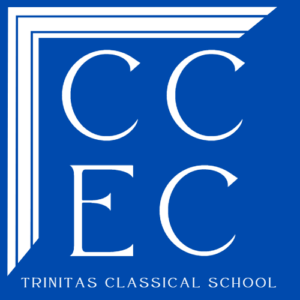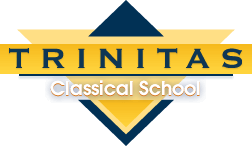 In this Classical Christian Education Corner, we begin a series on the three R’s of education: Reading, ‘Riting, and ‘Rithmetic. We look at the first R through the five W’s and one H: Who, What, When, Where, Why, and How. We’ll take these out of standard order, answering the easier ones first.
In this Classical Christian Education Corner, we begin a series on the three R’s of education: Reading, ‘Riting, and ‘Rithmetic. We look at the first R through the five W’s and one H: Who, What, When, Where, Why, and How. We’ll take these out of standard order, answering the easier ones first.
Who should read? A quick answer to that question is: Everyone who is capable of it. Why should everyone who is capable of it read? One reason is that God has given us an awe-inspiring, diverse world to explore, and reading is a very good way to discover, understand, and grow in love for creation and its Creator. In short, reading makes one’s world, one’s mind, and one’s heart bigger. There is also the fact that reading, as a form of self-education, is advantageous in nearly any area—professional or personal. And, during this pandemic, we might especially appreciate the aphorism that “reading gives us someplace to go when we have to stay where we are.” Reading can provide adventure as well as solace. It can provide companionship in isolation. “We read,” said C.S. Lewis, “to know we are not alone.” There are, of course, many other reasons to read. Part of the fun of reading is discovering more reasons for reading.
When and where should we read? At designated regular times and places. Happy associations with a good book and a warm lap at bedtime can cultivate a life-long habit of reading (even if it leads to staying up too late with a flashlight under the covers). Reading with older children even into high school can be its own distinct pleasure; it’s well worth making some time for it. There are plenty of less regular times and places for reading too. Any occasion for waiting is a good occasion for reading. Fight the temptation (or compulsion) to pull out your phone for you or your child. Share a book together instead. Consider other opportunities to replace screen time with book time. And remember that the outdoors and the printed page are often a perfect combination.
The short answers given to the first four W’s may not sound uniquely classical because they aren’t. We start to see a difference in approaches to reading when we look at what and how to read. A classical answer to the question of what to read is, not surprisingly: “The classics”. While no one would want to limit reading to only those works that have stood the test of time, a strong case can be made that such works should play a central part of an education. While we would expect thinkers in the humanities to make such a case, it is striking that Einstein also argued for reading the classics:
Somebody who only reads newspapers and at best books of contemporary authors looks to me like an extremely near-sighted person who scorns eyeglasses. He is completely dependent on the prejudices and fashions of his times, since he never gets to see or hear anything else. And what a person thinks on his own without being stimulated by the thoughts and experiences of other people is even in the best case rather paltry and monotonous. There are only a few enlightened people with a lucid mind and style and with good taste within a century. What has been preserved of their work belongs among the most precious possessions of mankind.
In pointing out how the classics open our minds to perspectives and ideas that are different from our own, Einstein gives us one side of the classical reading coin. The other side of the coin is that the classics open our minds to experiences that are common to mankind. One reason such works are “relevant” to us is that they continue to speak to and express timeless truths. Looking at both sides of the coin, we could say that the classics convey what G.K. Chesterton referred to as “wonder and welcome,” a sense of what is foreign and also a sense of what feels as familiar as home. And they convey those things masterfully–in striking, profound, and beautiful ways. It is a tenet of classical education that, with only so much time in a school day, we should spend some of it engaging with the “most precious possessions of mankind.”
How should we read? A classical answer is: Widely, deeply, and thoughtfully. In our next CCEC, we’ll have more about what that kind of reading looks like at Trinitas. In the meantime, watch for information about our Thoughtful Reader Book Club, and remember that a favorite book makes a great Christmas present!
© ALP
